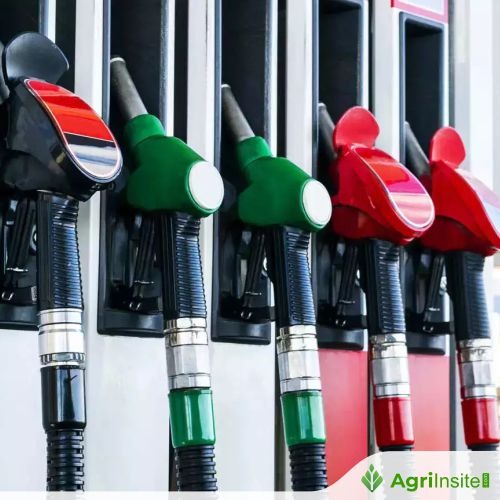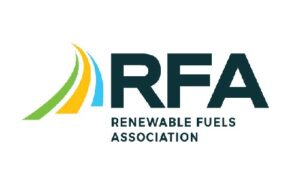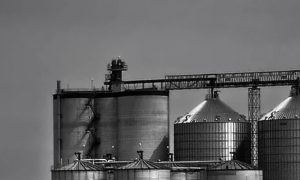Ethanol export: Experts urge to focus on domestic requirement first

India’s push to export ethanol faces major hurdles, experts say. High domestic sugarcane costs, lack of export price parity, and the priority of meeting internal blending targets make exports economically unviable for now. Experts stress the need for a structured biofuel policy, improved feedstock supply, and domestic ethanol security before targeting global markets.
The Food Minister Pralhad Joshi has expressed his desire for India to export ethanol and develop a global market for it. While addressing the Grain Ethanol Manufacturers Association (GEMA) event in New Delhi on July 18, 2025, the Minister stated that looking ahead, I encourage the industry to enter the global market by exporting ethanol, and achieve the vision of Hon’ble Home Minister Amit Shah of exporting ethanol.
ChiniMandi spoke with industry experts for their views on the matter and what needs to be done to ensure that India can become a consistent and committed exporter of ethanol in the near future.
Economic viability
Atul Chaturvedi, Executive Chairman, Shree Renuka Sugars, looks at the profit viability for exporting ethanol. “Currently, the procurement price of ethanol from sugarcane juice is around ₹65.61 per litre. At this price point, it simply doesn’t work, unless there’s a strategic shift, such as permitting the import of genetically modified corn, which could then be processed in dedicated coastal plants. But that’s an entirely different ballgame and would depend heavily on how trade negotiations with the United States progress”.
Chaturvedi said that domestically, the Fair and Remunerative Price (FRP) for sugarcane is high. And unless exporting ethanol can provide a better return, the shift from domestic sugar and ethanol production isn’t economically attractive. To make exports viable, a subsidy of approximately Rs 20 per litre is required.
“So, from both a policy and economic standpoint, exporting ethanol at current prices doesn’t make sense. It would make more sense to increase the domestic blending target to 30% and push Flex Fuel cars. Import substitution is the need of the hour,” he added.
Domestic ethanol blending priority
Vaibhav Dange, Public Policy Expert on Infrastructure, Green Fuels & Sustainable Mobility, said that the priority of the Government is to increase the ethanol production capacity in the country. He said that since India formed the Global BioFuel Alliance, there are several countries in East Asia, Mid-East and other smaller countries which are considering the ethanol blending programme, so there is a market available.
“However, India has to first cater to its internal demand for ethanol blending. We have achieved 20% blending, but the Government is setting a goal for a higher blending percentage. We have to ensure there is enough feedstock to support this national agenda, and also for producing SAF and bio-diesel, for which the Government has already set blending percentage targets” he added.
Dange said that there is a requirement for a structured BioFuel policy, which should encompass feedstock supply, higher prices, varietal development and a conducive tariff climate and competitive pricing, without these, it would be too premature to enter the ethanol export market.
Export price parity
Vijay Girase, Founder of Alsucrose Corporation and a biofuel expert, stated that currently India is exporting undenatured alcohol in world market. “The global ethanol market is too price-competitive. In order to export ethanol, we would have to compete with the USA, the leading ethanol exporter, Brazil and Pakistan. Without price parity, we will not be able to develop a market for us”. India itself is importing ethanol from the USA and Brazil for industrial purposes without import duty, and volume is around half a MMTs.
India is importing ethanol at a price $ 650 to 700 PMT, which is equal to ₹ 55/- per litre delivered to the Indian port. Girase asked whether the country can match this price, considering the cost of production and other costs involved?
Priority on SAF and JetFuel production
Narendra Mohan, Ex Director, NSI (Kanpur) & Advisor, ISMA said after achieving 20% ethanol blending, we are expecting the blending percentage to increase, which will require a lot of ethanol.
“There is a lot of discussion and interest in the industry around SAF (Sustainable Aviation Fuel) and the conversion of alcohol to BioJet fuel. Looking ahead, one policy mustn’t contradict or hinder another. We must ensure that our policies are aligned”, he said.
Before we become a net exporter, Mohan said that we must first assess our domestic needs—how we are going to meet them, and how our policies will evolve to support increased blending levels in the country. We also need to consider how India can expand its role in the SAF space.
“If we are considering exports, particularly of ethanol, we need a dedicated, clear policy for that. And in doing so, we must remain competitive in the international market. We need to first look inwards, assess our domestic priorities, and only then look outwards. And when we do look outwards, we must ensure we are globally competitive,” he added.
To Read more about Ethanol Industry & Bio Energy News, continue reading Agriinsite.com
Source : Chinimandi
















